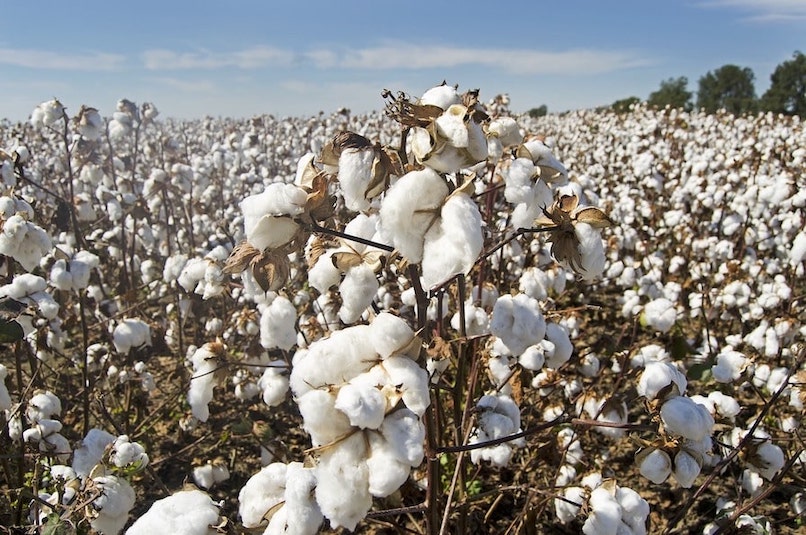It takes 10,000 litres of water to produce one kilogram of cotton. Global cotton production requires over 250 billion tons of water annually. This means, the production of one cotton t-shirt uses up about 2700 litres of fresh water.
October 7 is observed as World Cotton Day each year. The day is aimed at recognising the versatility of Cotton. However, on this World Cotton Day, let us look at how cotton is really unsustainable:
Extreme Water Consumption
According to a report by The Guardian that was published in 2015, “The water consumed to grow India’s cotton exports in 2013 would be enough to supply 85% of the country’s 1.24 billion people with 100 litres of water every day for a year. Meanwhile, more than 100 million people in India do not have access to safe water”.
This data is staggering. Especially considering the consistent demand for Cotton in the textile industry. In fact, cotton represent 25 per cent of the total fibre requirement globally.
To meet the demand of cotton, the cultivation of cotton is also high that it has depleted the 4th largest lake in the world – The Aral Sea.
Use of pesticides and chemical fertilisers increases virtual water consumption. According to a study by Water Footprint Network, producing 1kg of cotton in India consumes 22,500 litres of water, on average. In other words, this 22,500 litres of water cannot be used for anything else because it has either evaporated or is too contaminated for reuse. Putting this into perspective, by exporting more than 7.5m bales of cotton in 2013, India also exported about 38 billion cubic metres of virtual water. This amount of water would more than meet the daily needs of 85% of India’s population for an entire year.
Excessive use of Pesticides and Harmful Chemicals
Repeated cultivation of cotton degrades the quality of soil and makes it infertile over time. However, since it is one of the cash crops, the farmers are motivated to grow it, even at the cost of utilising excessive amounts of chemical fertilisers and pesticides. This not only further degrades the soil but also contaminates the ground water and water that runs off and joins a stream or a lake.
Organic Cotton
In general, cotton cultivation does not require as much water. It is the use of toxic chemicals that exacerbates the water consumption and pollution. Which is why, organic cotton consumes much less water. It also does not use any chemicals, keeping the soil health on the healthier side. No exposure to such toxic chemicals for farmers is also great for their health. However, that does not mean that the water consumption is not more for even organic cotton cultivation. Additionally, to maintain health of soil, a farmer producing organic cotton can only do so through crop rotation. Thus, the quantity of such cotton produced is significantly less. In fact, only about 1 per cent of the total cotton produced globally is organic in nature. This makes it highly expensive.
Way forward
Recycled cotton is the most sustainable of traditional cotton or organic cotton. Since it is produced from pre-used cotton clothes or scraps, it does not require any more consumption of water. Additionally, it also contributes in overall cotton industry in the way that it reduces the need to produce new cotton, making it easier on water and soil.
Recycled cotton has poor fibre quality, and thus the clothes made from such have lesser life. However, in today’s world where fast fashion is in trend, if one is going to discard their clothes after few uses, how does it matter whether they have a long life or not?


